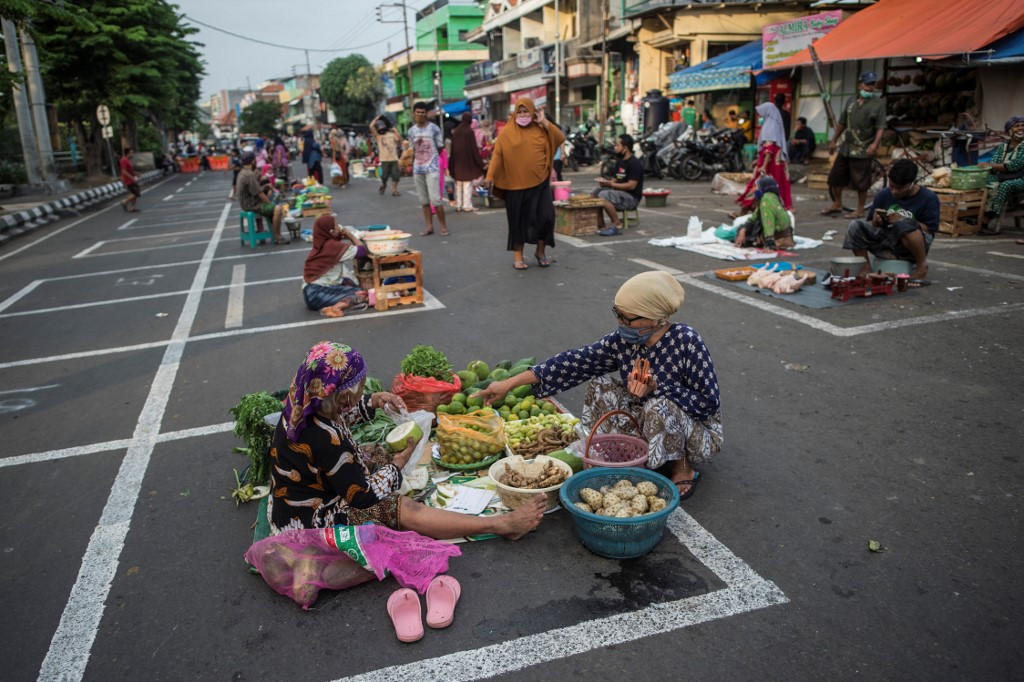Popular Reads
Top Results
Can't find what you're looking for?
View all search resultsPopular Reads
Top Results
Can't find what you're looking for?
View all search resultsGlobal survey finds Indonesians ‘least optimistic’ about COVID-19 situation
A global survey has found that public perception of the government's COVID-19 measures in Indonesia is currently the lowest in the world.
Change text size
Gift Premium Articles
to Anyone
I
ndonesians have erred on the side of doubt and pessimism while the government struggles to mitigate the COVID-19 epidemic in the country, according to a recent survey by YouGov.
The global public opinion organization’s latest update on Monday shows that "Perception of government handling of COVID-19" has dropped in Indonesia.
Overall public approval of the Indonesian government's COVID-19 response declined from 66 percent on May 11 to 50 percent on May 25, according to the YouGov tracker.
The Philippines also recorded a decline in public approval over the same period, from 72 percent to 64 percent.
The trend towards skepticism in Indonesia and the Philippines was congruent with a significant drop in optimism regarding the current crisis, the organization said in its related report, "International COVID-19 tracker update: 1 June".
“It is no coincidence that the fall in the faith in the Indonesian and Filipino governments comes at the same time as a sharp drop in the belief that the coronavirus situation in those countries is getting better,” it states.
According to the survey, only 19 percent of Indonesians believe that "the national COVID-19 situation was improving", a significant decline from 35 percent recorded in the previous survey.
“This is the lowest of any country in the study – the next closest is Mexico at 25 percent,” the report reads.
Read also: ‘New normal’ aims to keep economy running: Minister
The data also shows, however, that the Indonesian public is still supportive of the government's strict health protocols as the pandemic continues unabated, such as quarantining the direct contacts of an infected patient and temporarily closing schools.
Public support for Indonesia's quarantine procedures increased from 50 percent in February to 74 percent in March, and fluctuated slightly in May to 73 percent in the latest survey.
Meanwhile, support for the government’s decision to temporarily close schools in the country increased from 48 percent in April to 55 percent in May.
Several government institutions have been gearing up in recent weeks for the "new normal” phase following two months of physical distancing and the large-scale social restrictions (PSBB) in certain regions.
However, experts have called for a thorough epidemiological study to determine whether the timing is right for easing restrictions and reopening businesses amid concerns over a second wave of infections, especially following increased activity and movement during Idul Fitri on May 24-25 and considering the country’s limited testing capacity.
Indonesia reported a cumulative total of 27,549 confirmed cases of COVID-19 and 1,663 deaths on June 2.










